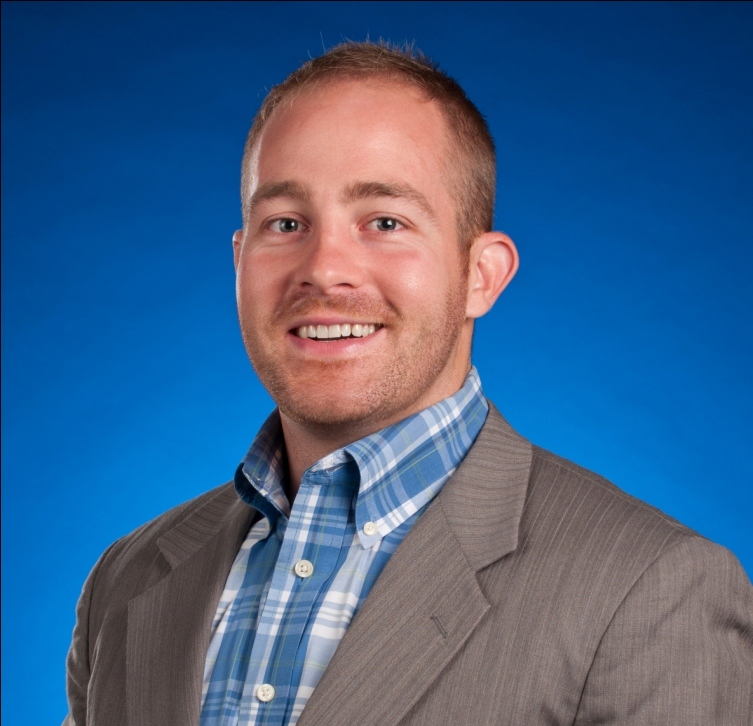Phillip Deutschler, IE 2006, admits that when he graduated, he didn’t fully appreciate the flexibility his degree would eventually afford him. It wasn’t until later that he realized that the value of his experience at ISyE reached beyond what he learned in the classroom and it became increasingly apparent when he delved deeper into his career. He says, “Georgia Tech teaches people how to learn. To be successful, the coursework requires students to be constantly learning on all fronts to solve a dynamic problem set. This isn’t a distant parallel to problem solving in a professional context. Businesses face ambiguous problems with an indefinite number of solutions, and it is your responsibility to set the path. It’s about making decisions with a degree of certainty in an uncertain world.”
Deutschler began his career at Siemens, first in their Operations Leadership Development Program, then as an internal consultant focused on operational challenges in manufacturing, supply chain and project management. Then he went on to launch his first of several entrepreneurial projects, Georgia Biodiesel Corporation. He has since worked on several other startups, and currently works at Deloitte Consulting where he focuses on clients in the energy sector. Phillip also serves on the board of directors of GUHDO USA Inc. (guhdo.com), an industrial tooling company, where he holds an advisory role.
What was Georgia Biodiesel and what happened?
For those unfamiliar with biodiesel, it is a renewable fuel that is produced from plant oils or animal fats that has valuable applications as an additive in traditional petroleum diesel fuel. It reduces the admissions profile of the fuel while improving the lubricity and other characteristics.
I identified an opportunity to use lower cost raw materials, that weren’t compatible with existing technologies, to produce biodiesel that exceeded international quality standards. Having the raw materials, but no known way to use it was the crux of our initial challenge. So I thought like an IE, rolled up my sleeves and engineered a brand new production technology. The process went against much of the traditional wisdom in the industry, but it worked and it gave us a competitive advantage.
Having successfully piloted and vetted the strategy we continued on and achieved several other noteworthy milestones, including participating in the U.S. Bioenergy Delegation to Germany and even having the groundbreaking of our production plant in Blakely, GA. The project came to a peak at exactly the wrong time. Volatility in the energy market and tight lending practices made it difficult to drum up the necessary financing and I eventually made the tough decision to shut down the project. It taught me a valuable lesson though, sometimes knowing when to walk away from a project is just as important as knowing when to go after one.
What are some of the other entrepreneurial projects you’ve undertaken?
Some of the more noteworthy included a project trying to address the growing education loan market in the U.S., another which worked to identify unconventional applications for mature green-tech solutions and a software company, Everbase (everbase.net), addressing the international data security concerns created by the NSA’s data collection practices. I also did start-up consulting in Germany for several months with a firm called Four Quarters EXIST.
What advice do you have for aspiring entrepreneurs, particularly those earlier in their careers?
First of all, I think “entrepreneurship” has become a buzzword that is overplayed. In my view, the same skills that make a good entrepreneur – such as identifying and solving problems, being able to execute a project, taking ownership in your work and understanding business from a holistic context – are the same skills that let you excel in corporate environments. That said, there are a few lessons I wish I’d learned earlier.
Don’t treat your age or experience as a liability, make it an asset and own it. The minute you act as though it might be a disadvantage is the same moment others will recognize it as one. Instead, frame it as a strength and leverage it as an asset. Ultimately any idea needs to stand or fall on its own merits and your newness can give you more energy to seek out solutions and increased flexibility to think beyond conventional wisdom. Don’t underestimate the value of disruptive thought.
Also, don’t be greedy. By that, I mean don’t feel the need to own everything and do everything yourself. Seek out and find partners that complement your skill set and treat them fairly. Their personal investment in the project will help ensure their interests align with yours. In the end, a smaller share of a stronger project is more valuable than hundreds or thousands of hours invested in a failed endeavor.
Consulting is a popular career for IEs. Why do you think that is?
I think IEs gravitating towards consulting is purely a function of the core skills the program equips you with. Consultants typically address their clients’ most pressing challenges to help them maneuver an uncertain path. At a most basic level, it comes back to my point earlier about making decisions with a degree of certainty in an uncertain world. There is also a systematic problem solving approach and quantitative perspective that are both extremely valuable. Businesses are relying more and more on data driven analytics to deliver impact. This is something that IE, as a field, does particularly well.
What would you share with students aspiring to join the consulting field?
And for any aspiring consultants, I can share with them a few characteristics that I’ve seen are pretty common across most individuals who excel in the field. First, nail the basics. Having a strong baseline toolbox of quantitative and qualitative skills, such as being able to perform analytics and tell a compelling story, are table stakes to get your foot in the door. Next, be comfortable with ambiguity and uncertainty. It is fairly common that you will be engaged to address a challenge that either isn’t fully understood or that actually stems from some seemingly unrelated root cause. Finally, make sure you can be effective in a team-based environment. Most, if not all, work in this field is team based and an essential key to delivering results is the ability to craft solutions that are a composite of multiple perspectives from individuals with diverse personal experiences and skills.
What are two facts about you that would surprise most people?
I’m a passionate equestrian, spending a lot of my weekends tearing through the woods on horseback.
Going into my last year at Georgia Tech I had spent more semesters enrolled abroad than on our Atlanta campus. Most people would probably be surprised to know that was even possible, but between Georgia Tech Lorraine, Language Business and Technology, exchange programs and internships, it somehow happened.

